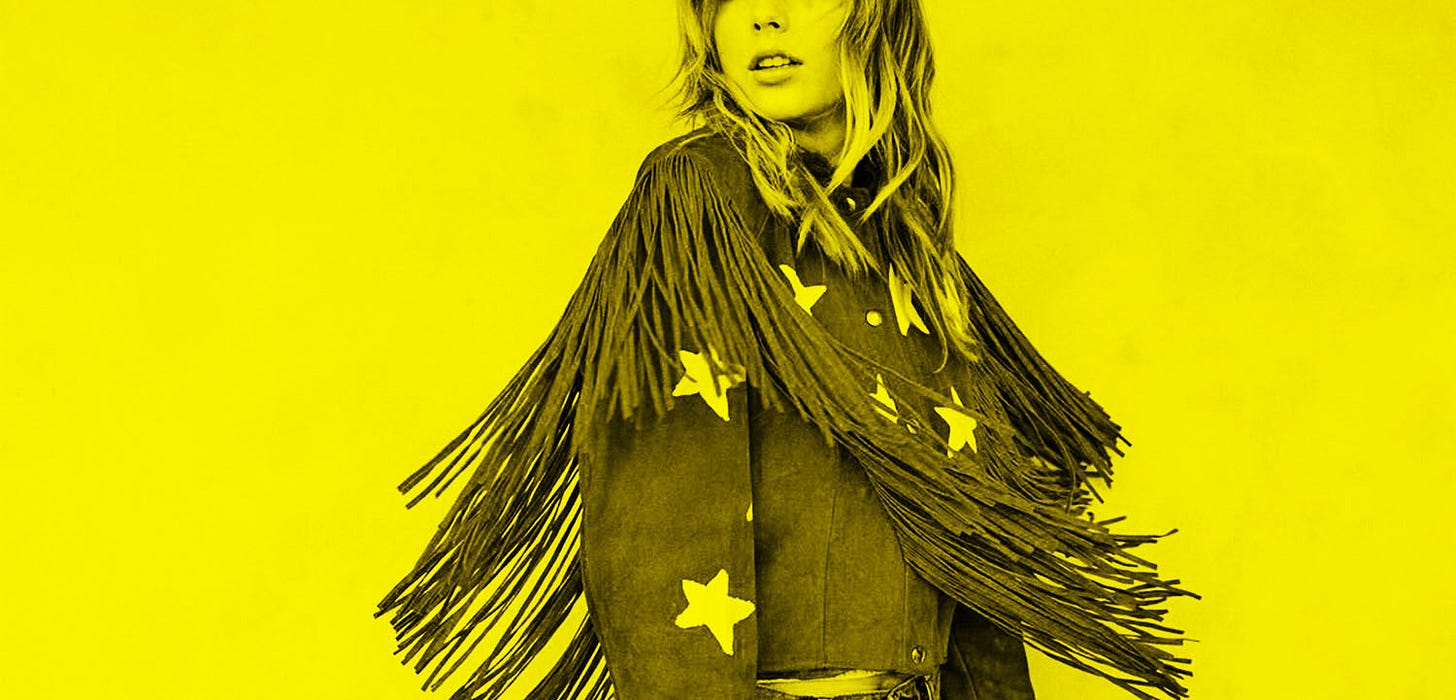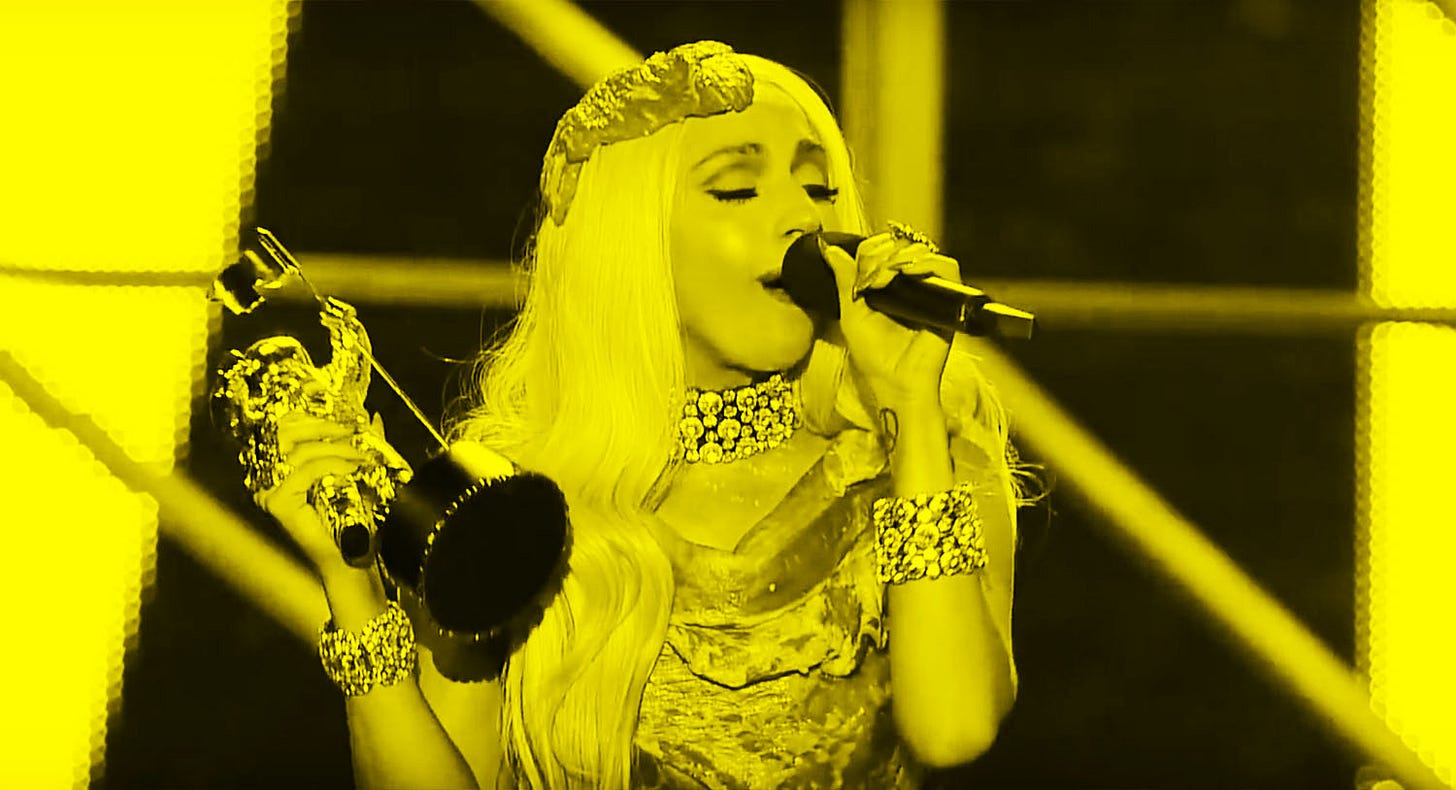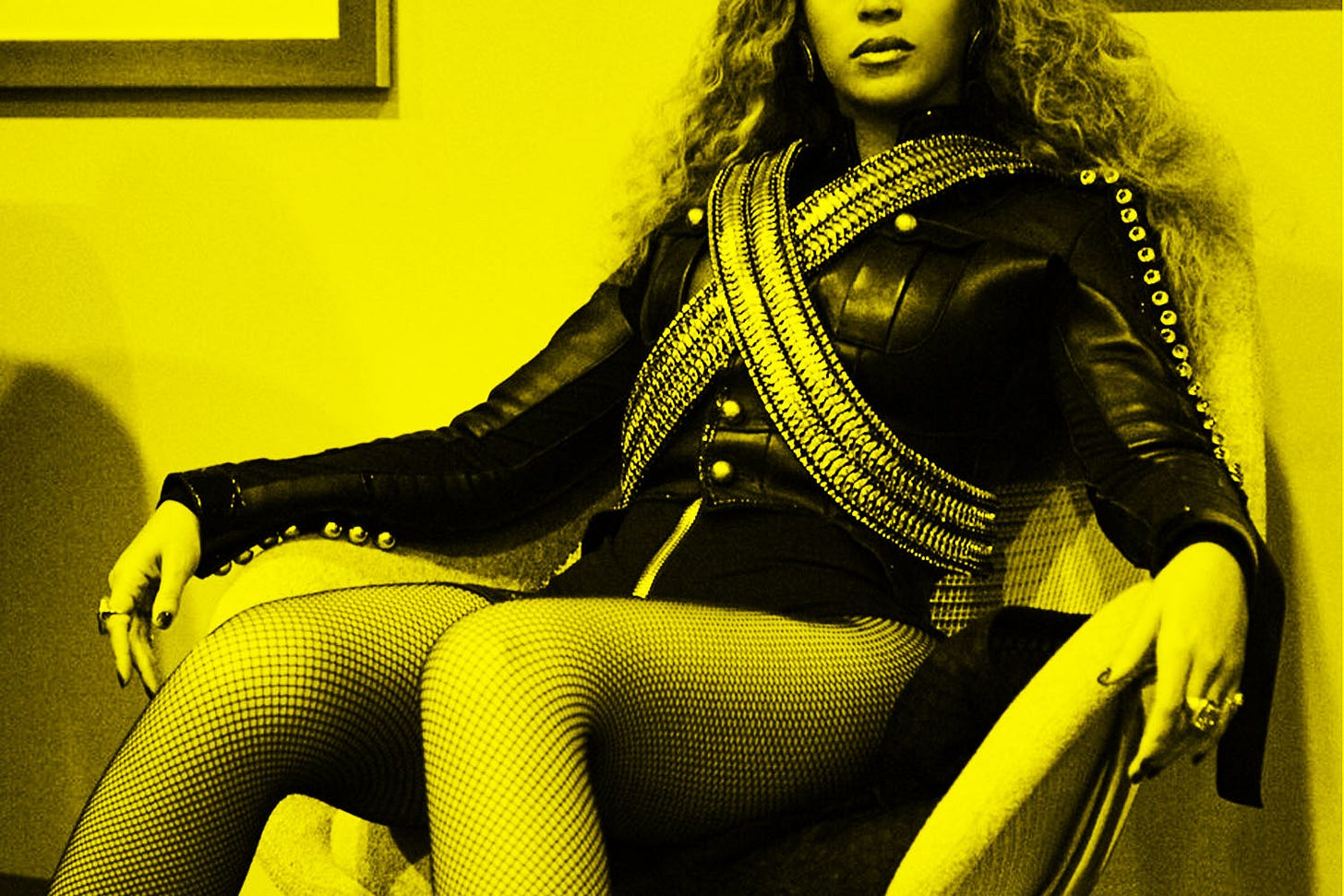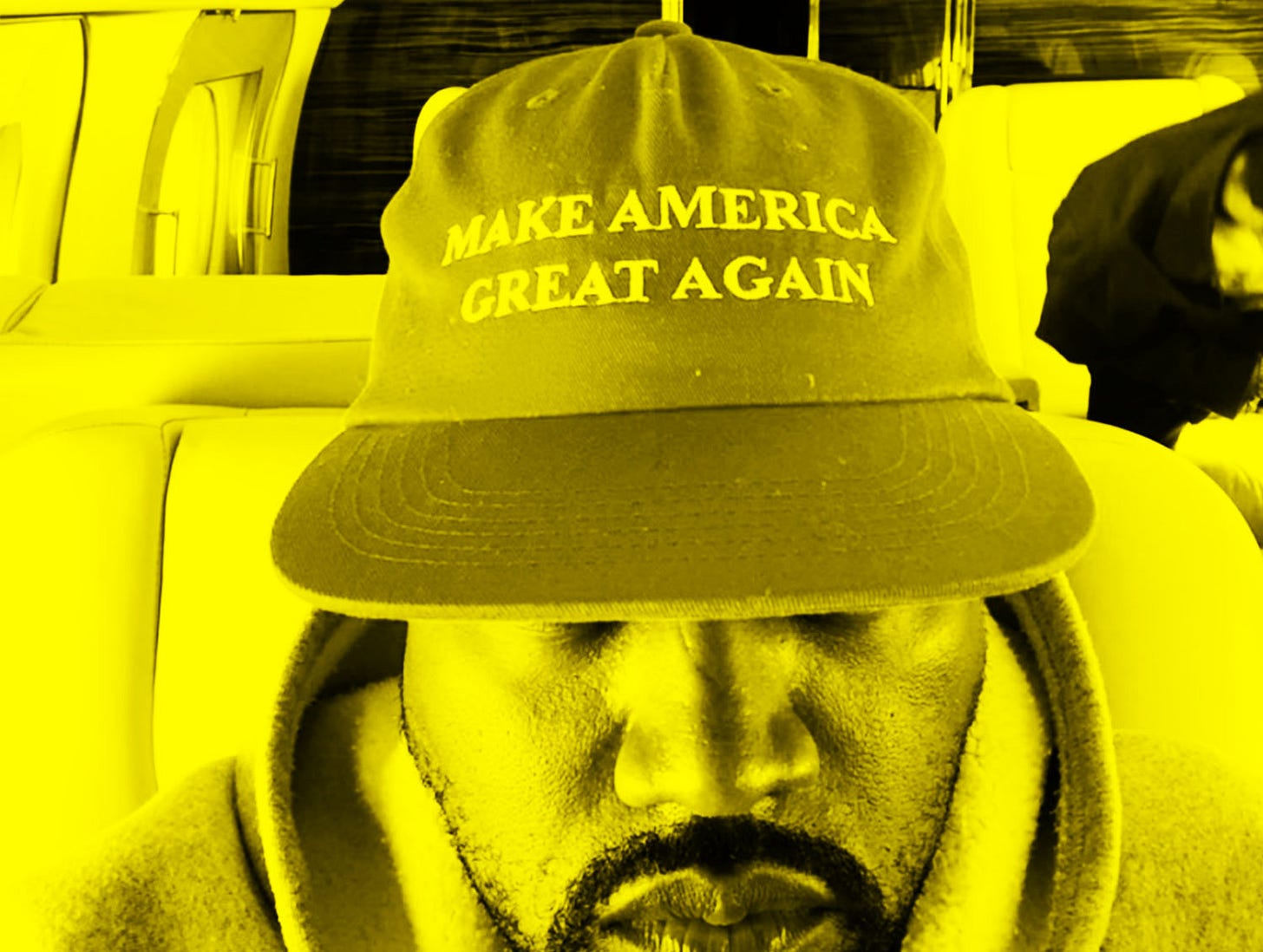Hear me out, the 2010s was an era of peak political pop music

Credit: Valheria Rocha
While popular music has gone through periods of heightened activism in the past, I don’t know that we’ve seen the level of political expression that permeates pop today. Hear me out.
Sure, the 2010s might not have given us 1960s-level protests anthems, but speaking out on politics has become a basic job requirement for the modern pop star, as I wrote in June for Yello’s pop star primary preview. Taylor Swift has advocated for specific pieces of legislation, Kanye West got an Oval Office visit, and Ariana Grande has been photographed with no fewer than three presidential candidates since February.
“I would rather sell fewer records and be outspoken about what I think is some f-ckery than sell more records,” Grande told Vogue in her July cover story.
She ended up being Spotify’s most-streamed female artist of the decade.
In another era, someone like Swift might have stayed mum on her politics, recognizing both Democrats and Republicans would stream Lover. Instead, she endorsed candidates in her home state of Tennessee in 2018 and promised more where that came from in 2020. On “Miss Americana & The Heartbreak Prince,” she explored a loss of faith. “American glory / Faded before me / Now I'm feeling hopeless,” she sang.
When a musician as popular and savvy as Swift decides to go public with her beliefs, you know the culture has shifted.
“It Gets Better” pop

Credit: MTV
Pop’s political point of entry this decade was bullying. Campaigns like “No H8” and “It Gets Better” as well as a string of highly publicized suicides transformed bullying from being perceived as a routine part of adolescence to a social problem. Pop songs about empowerment were elevated as a soundtrack to a movement. Call it “It Gets Better” pop.
In 2010 alone, “We R Who We R” by Kesha, “Raise Your Glass” by Pink, and “Firework” by Katy Perry all went No. 1 on the Billboard Hot 100. They were socially conscience descendants of Christina Aguilera’s 2002 hit “Beautiful,” and like “Beautiful,” they were widely applicable but had a specific resonance with the queer community.
Lady Gaga gave us the mother of all “It Gets Better” pop with “Born This Way” in 2011. OK, so maybe it tried too hard and sounded a bit like Madonna’s “Express Yourself,” but “Born This Way” was the most straightforward song of the genre. “A different lover is not a sin,” Gaga sang.
Released at the zenith of her imperial period, Gaga was cashing in on her cultural capital with a love letter to the queer community. She previewed the track at the 2010 MTV Video Music Awards, singing a line from the chorus after winning Video of the Year and asking Cher to hold her meat purse.
Other musicians would prove themselves allies through song, like Macklemore and Ryan Lewis, who teamed up with Mary Lambert for “Same Love,” and Taylor Swift, who included the line “you can want who you want / boys and boys and girls and girls” after moving from a red state to a blue one on “Welcome to New York.” On her libertarianish anthem “Follow Your Arrow,” Kacey Musgraves sang in favor of rolling up a joint and kissing lots of boys or “lots of girls, if that’s something you’re into.”
By the end of the decade, queer artists like Frank Ocean, Tyler Glenn, and Hayley Kiyoko could speak for themselves. During the middle of his record-breaking 19-week run at No. 1 with “Old Town Road,” Lil Nas X came out.
Is the Super Bowl still the biggest stage in music if they can’t book the biggest names?

Credit: beyonce.com
There is perhaps no better tool for measuring pop’s political temperature than the Super Bowl halftime show. A lot has changed in ten years.
In 2010, the Who performed, the last in a string of legacy acts booked post-“nipplegate.” Two years later, Madonna kicked off an era of pop queen headliners with a set that featured actual voguing. It was quite possibly the gayest thing to ever grace a Super Bowl field and was followed by Katy Perry (2015), Lady Gaga (2017), and two Beyoncés (2013 and 2016).
Beyoncé’s first halftime show was a greatest hits tour de force, with a set list that included “Crazy In Love,” “Run The World (Girls),” and a three minutes and 12 seconds Destiny’s Child reunion. When she took the field two years later, though, Beyoncé’s performance was much more pointed.
In the interim, she had released “***Flawless,” which sampled Chimamanda Ngozi Adichie’s definition of a feminist as someone who believes “in the social, political and economic equality of the sexes,” and “Formation,” which dropped the day before Super Bowl 50, with a music video that referenced Hurricane Katrina and police brutality.
Though Coldplay was the halftime headliner, Beyoncé stole the show in 2016 with dancers paying homage to the Black Panthers and her first live performance of “Formation.” Six months after her performance at Levi’s Stadium, the San Francisco 49ers’ Colin Kaepernick began his protests against police brutality. Today, because of Kaepernick and the protests he inspired, the NFL has become toxic for musicians like Rihanna, Cardi B, and Pink, who all turned down halftime show invitations.
“I’d probably take a knee and get carried out,” Pink told Billboard.
Pop gets partisan

Credit: @kanyewest
The 2010s was the decade that MTV added politics to the Video Music Awards. The Best Video with a Social Message category launched in 2011 and saw nominees like Rihanna, whose “American Oxygen” told the story of immigrants becoming the new Americans, and Swift, whose “You Need to Calm Down” music video was anything but subtle, showing an anti-gay protestor holding a misspelled sign and one woman in an American flag top.
In 2018, Childish Gambino won the category for “This Is America,” the first explicitly political song to go No. 1 on the Hot 100 since “Born This Way.” The disorienting juxtaposition of gun violence and dancing in the “This Is America” music video was interpreted by some as commentary on violence and cultural appropriation faced by black Americans.
Racism was touched on in other songs, like Frank Ocean’s “Nikes,” which mentioned Trayvon Martin, while Kendrick Lamar’s “Alright” ended up becoming an anthem for the Black Lives Matter movement. When Beyoncé and Lamar opened the 2016 BET Awards with “Freedom,” their performance sampled Martin Luther King, Jr.’s “I Have a Dream” speech.
Female musicians shared feminist messages, like Janelle Monáe on “Pynk” and Swift on “The Man.” On “BO$$,” Fifth Harmony gave a shoutout to Michelle Obama and boasted about making “Oprah dollas.”
The 2016 election saw political pop music head in a more partisan direction. YG and Nipsey Hussle responded to Donald Trump’s candidacy with “FDT,” a song that means exactly what you think it means. Kelly Clarkson would pay homage to Michelle Obama’s “when they go low, we go high” mantra on “Go High,” while Katy Perry sang about social media filters on “Chained to the Rhythm.”
Kanye West showed his first signs of going MAGA shortly after the 2016 election, telling the Sacramento crowd on his Saint Pablo Tour that he didn’t vote, but if he did it would have been for Trump. West’s Trump support never got around to feeling fully policy driven. Rather, it seemed like a way of thumbing his nose at the establishment and doing what people thought wasn’t possible. After donning a “Make America Great Again” hat, he became a conservative hero, but his only actually political song to come out of this era was “Ye vs. the People (Starring TI as the People).”
Pop’s swing into politics in the ‘10s is all the more surprising because of the decade that preceded it, with events like the backlash over the Dixie Chicks’ George W. Bush comments, a Killers vs. Green Day feud over trash talking the U.S. overseas, and Madonna actually self censoring. Her original “American Life” music video featured a gag grenade being tossed at a George W. Bush lookalike and battlefield-inspired catwalk interspersed with images of war, but she scrapped it citing the “volatile state of the world.”
Today, the volatile state of the world is exactly why musicians feel the need to speak out.
Spin a playlist of songs from this article here:



